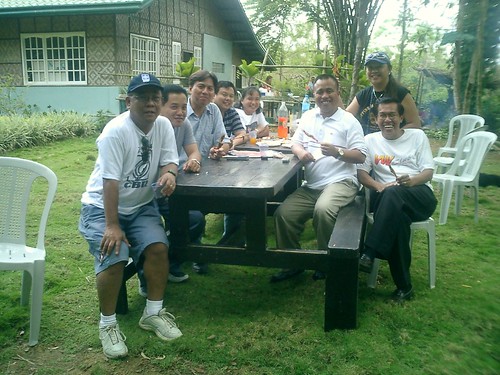PRESIDENT Gloria Macapagal-Arroyo's apology to the nation last Monday was not without precedent. On Jan. 1, 1964, President Diosdado Macapagal used his New Year's Day speech to say, "We have not been without our faults and our failures. This we must confess in all sincerity ... I, too, am a mortal with feet of clay." He was reacting, in his day, to charges of being dictatorial in style, if not in aspiration. His speech was met with skepticism.
Skepticism, too, has met President Arroyo's brief speech, in which she admitted that she had talked to an official of the Commission on Elections in what, she assured the nation, was merely a desire "to protect my votes." What we cannot be skeptical about is the fact that the President made a virtually unprecedented apology to the nation, and that in her own way, she tried to be loyal to the example set by her father.
Unfortunately, at this time, the nation is less interested in her loyalty to her father's memory than it is in whether or not her assertion of merely having committed a "lapse in judgment" is something for which an apology should suffice.
The brevity of the President's address was surprising. Considering that she took three weeks to break her silence, she could have gone into more detail, if only to minimize the questions that have inevitably arisen as a result of what she said. The shortness of her statement owes to the advice of retired Justice Jose Vitug and her other legal advisers, as Press Secretary Ignacio Bunye made clear afterwards. However, it would have been more statesmanlike, and surely more politically responsible (if legally risky) to give the nation a fuller explanation of what she did, and why.
The President would have us believe that there's nothing wrong with "protecting" votes, though even the most generous interpretation of her defense must waver in the face of the repeated instances that she phoned the Commission on Elections (Comelec) official whose name she still refused to say. Every realist will assert that the President is a politician like any other, with a pressing need to "protect" votes, the same as any other candidate. Be that as it may, the President, too, has an obligation unique to her office, which is to protect the votes of everyone-her opponents, included. This is the reason, going beyond the actual provisions of electoral and other laws, why she, by her own reckoning, committed an error in judgment. In any contest, it just looks plain wrong to be calling the referee for a private conversation.
It would have been better for the President to tell the Filipino people more, so that they would have to imagine less. We do not even know which specific recordings she considered regrettable, since she did not bother to say which were authentic. Why focus on this question? Because the people have no choice but to hold back from either accepting or rejecting the President's apology, until they have a chance to see for themselves if the conversations she had with the Comelec official were merely improper.
Since the President has admitted that she did have some conversations with the official, those conversations indisputably become a legitimate public issue. They deserve the widest dissemination and discussion. They deserve the closest scrutiny. Their existence is undeniable, though their origin still remains obscure. The criminal nature of their origin deserves the most thorough investigation, but such an investigation cannot be used, in any way, to impede the public's obligation to listen and make up its own mind.
This should be the last time illegally sourced tapes are used as fodder for a political scandal. The scandal, however, is there, and we would like to see two resolutions to this crisis, at the very least. The first is a demonstration of political accountability, by which we mean that the public must have a chance to weigh the President's statements against the recordings. The second is that the perpetrators of the illegal wiretapping (if indeed it was illegally recorded) be identified and punished.
There has to be no ifs, ands or buts. The President has spoken; now, let the people be heard.







No comments:
Post a Comment